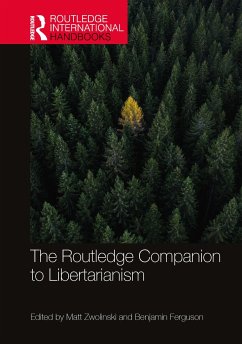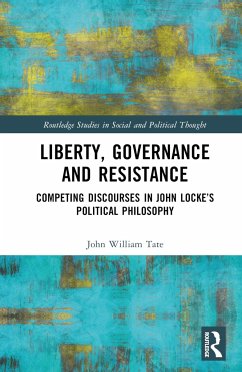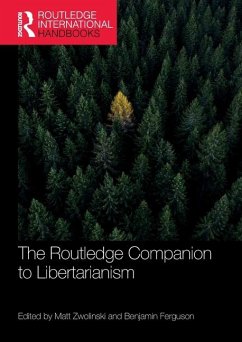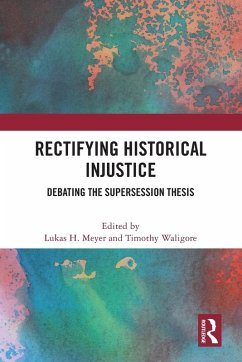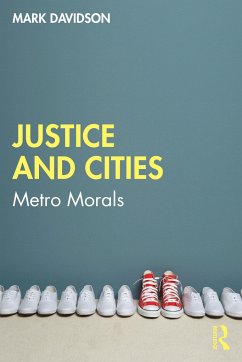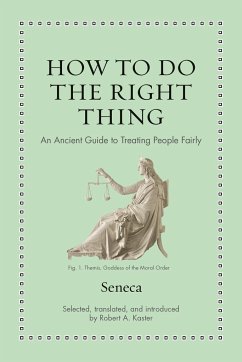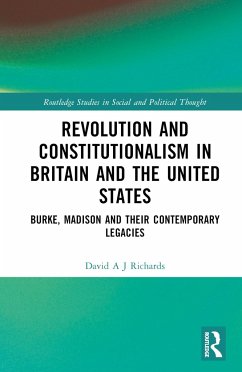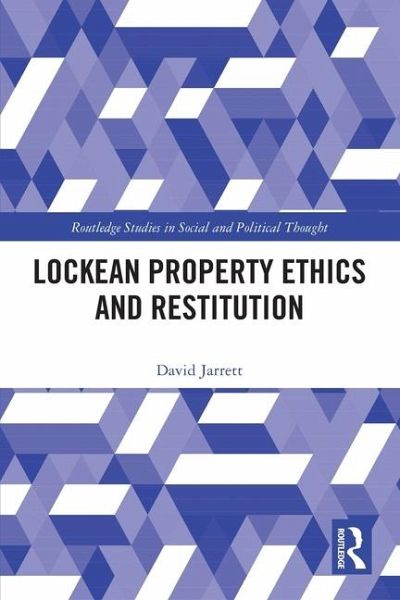
Lockean Property Ethics and Restitution
Versandkostenfrei!
Versandfertig in 6-10 Tagen
45,99 €
inkl. MwSt.
Weitere Ausgaben:

PAYBACK Punkte
23 °P sammeln!
In this book, David Jarrett argues that the influential Lockean thesis of justice in property, which traces back to John Locke, seems to entail much egalitarian property redistribution.Put briefly, Lockeans argue that people justly own: (1) any unowned natural resources they labour on, (2) any resources they receive via voluntary transfer from a legitimate owner, and (3) any resources they legitimately receive in compensation for harm done to their person or legitimately held property. However, a question that has been largely overlooked by Lockeans is how to address the problem of property wh...
In this book, David Jarrett argues that the influential Lockean thesis of justice in property, which traces back to John Locke, seems to entail much egalitarian property redistribution.
Put briefly, Lockeans argue that people justly own: (1) any unowned natural resources they labour on, (2) any resources they receive via voluntary transfer from a legitimate owner, and (3) any resources they legitimately receive in compensation for harm done to their person or legitimately held property. However, a question that has been largely overlooked by Lockeans is how to address the problem of property which did not arise in line with Lockean justice. What do we do about property which derives from feudal and colonial conquest, for example? Drawing on a range of theoretical and historical sources, this book argues that the legal concept of restitution is the most reasonable way to address the problem. If we apply this concept, it appears that much property in the world is held unjustly and should be redistributed in an egalitarian manner.
Lockean Property Ethics and Restitution will be of interest to political theorists and philosophers alike.
Put briefly, Lockeans argue that people justly own: (1) any unowned natural resources they labour on, (2) any resources they receive via voluntary transfer from a legitimate owner, and (3) any resources they legitimately receive in compensation for harm done to their person or legitimately held property. However, a question that has been largely overlooked by Lockeans is how to address the problem of property which did not arise in line with Lockean justice. What do we do about property which derives from feudal and colonial conquest, for example? Drawing on a range of theoretical and historical sources, this book argues that the legal concept of restitution is the most reasonable way to address the problem. If we apply this concept, it appears that much property in the world is held unjustly and should be redistributed in an egalitarian manner.
Lockean Property Ethics and Restitution will be of interest to political theorists and philosophers alike.





